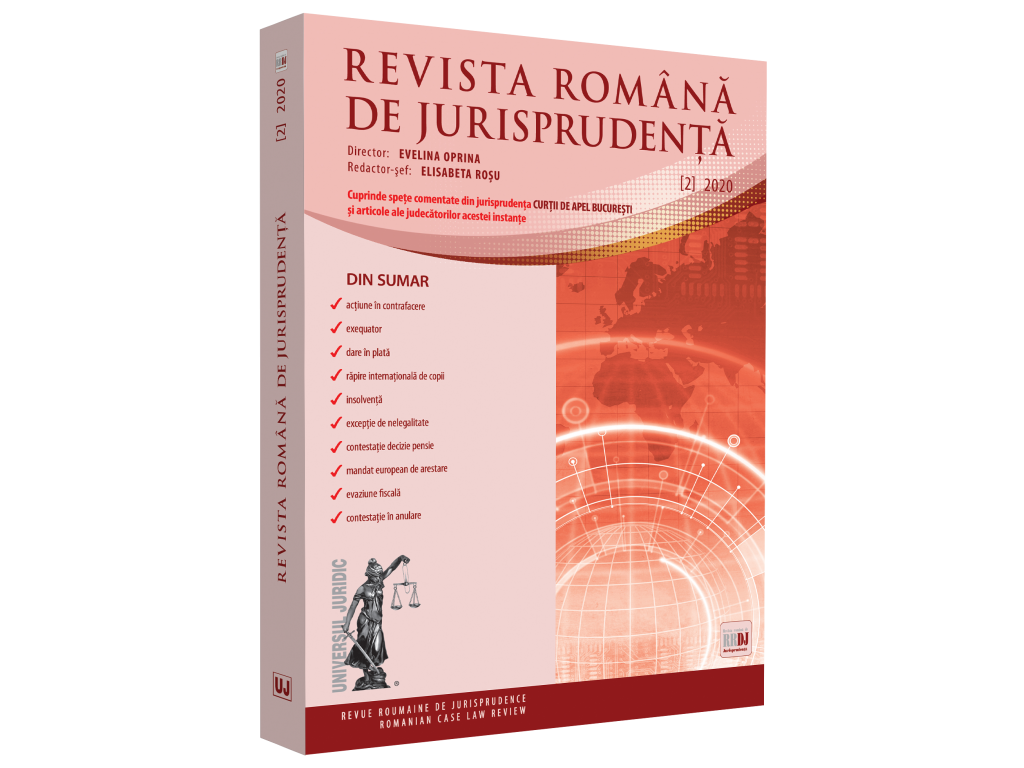Second appeal. Adverse possession. The useful possession of an immovable asset not registered in the tax records. The legal regime of the presumptions established by art. 1854 and art. 1855 of the Civil Code 1864
DREPT CIVIL ȘI DREPT PROCESUAL CIVIL
Abstract
The check of fulfilment of the legal conditions in order to acknowledge adverse possession, respectively the correct legal classification of the established facts, shall represent an issue of lawfulness, and not of soundness and if it is noted that the claimant and the author have materially possessed the building for 30 years, however, the animus element is denied by a reasoning which is contrary to the legal rules applicable to it, this legal classification and solution show unlawful elements, as they are based on the non-application of certain rules of law applicable in the case and mandatory for the courts of first instance. In application of the provisions of Article 1854 and Article 1855 of the Civil Code of 1864, the court could not overturn the legal presumption of possession by a simple presumption only resulted from the non-registration in the tax records, as in doing so, not only the system of the Civil Code in the matter of proving possession was breached, but also the regime of simple presumptions, which may only be held in the absence of a legal presumption, and not against it. (…) The avoidance of the registration in the tax records as a decisive condition to acknowledge useful possession is wrong in law, as such a requirement is not included in Article 1847 et seq. of the Civil Code of 1864.








